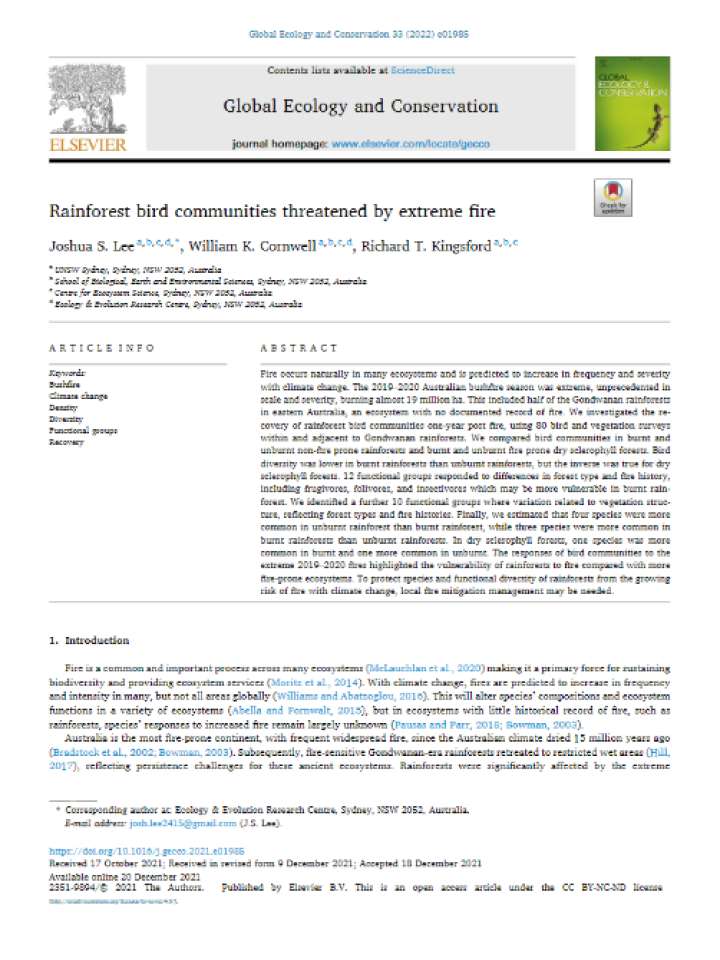Rainforest bird communities threatened by extreme fire
Fire occurs naturally in many ecosystems and is predicted to increase in frequency and severity with climate change. The 2019–2020 Australian bushfire season was extreme, unprecedented in scale and severity, burning almost 19 million ha. This included half of the Gondwanan rainforests in eastern Australia, an ecosystem with no documented record of fire. We investigated the recovery of rainforest bird communities one-year post fire, using 80 bird and vegetation surveys within and adjacent to Gondwanan rainforests. We compared bird communities in burnt and unburnt non-fire prone rainforests and burnt and unburnt fire prone dry sclerophyll forests. Bird diversity was lower in burnt rainforests than unburnt rainforests, but the inverse was true for dry sclerophyll forests. 12 functional groups responded to differences in forest type and fire history, including frugivores, folivores, and insectivores which may be more vulnerable in burnt rainforest. We identified a further 10 functional groups where variation related to vegetation structure, reflecting forest types and fire histories. Finally, we estimated that four species were more common in unburnt rainforest than burnt rainforest, while three species were more common in burnt rainforests than unburnt rainforests. In dry sclerophyll forests, one species was more common in burnt and one more common in unburnt. The responses of bird communities to the extreme 2019–2020 fires highlighted the vulnerability of rainforests to fire compared with more fire-prone ecosystems. To protect species and functional diversity of rainforests from the growing risk of fire with climate change, local fire mitigation management may be needed.
